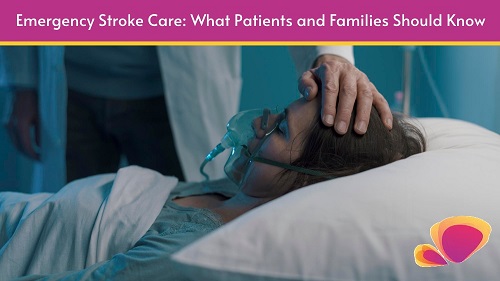Emergency Stroke Care: What Patients and Families Should Know
 A stroke is a life-threatening condition that occurs when the blood supply to the brain is suddenly cut off. This medical emergency requires immediate treatment to reduce the risk of brain damage, disability, or even death. Knowing how to act fast can save a life.
A stroke is a life-threatening condition that occurs when the blood supply to the brain is suddenly cut off. This medical emergency requires immediate treatment to reduce the risk of brain damage, disability, or even death. Knowing how to act fast can save a life.
Recognising a Stroke Early
The key to stroke care is early recognition. Common signs include:
- Sudden numbness or weakness, especially on one side of the body
- Difficulty speaking or understanding speech
- Vision problems in one or both eyes
- Loss of balance or coordination
- Severe headache with no known cause
If any of these symptoms appear, take the person immediately to the nearest Emergency Hospital.
Role of the Emergency Physician
At the hospital, a trained Emergency Medicine Doctor or Emergency Physician will assess the patient. These specialists are experienced in diagnosing strokes quickly and starting urgent care such as clot-busting medicines or planning surgical options if needed.
Also Read: Difficulty in breathing – What it could mean and emergency response
Why Time Matters
In stroke care, every minute counts. Brain cells begin to die within minutes of a stroke. That’s why it is important to rush the patient to a trusted facility like an Emergency Care Hospital in Vadapalani Chennai, where stroke protocols and 24x7 specialists are available.
How Families Can Help
- Call emergency services immediately if stroke symptoms are noticed
- Note the time when symptoms started
- Bring the patient’s medical history and list of medicines
- Stay calm and offer reassurance
Stroke care doesn’t end with emergency treatment - rehabilitation and follow-up are equally important.
Choose a reliable Emergency Hospital that offers comprehensive stroke care, from diagnosis to recovery. Early action can lead to better outcomes and save precious lives.
- Apr 25, 2025
